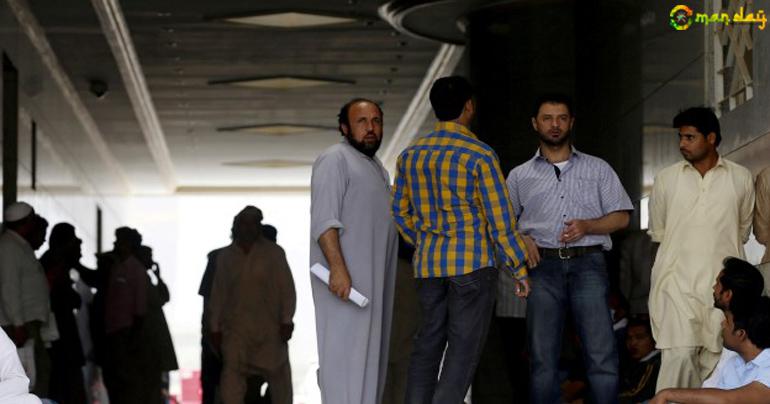Expats Begin Leaving Gulf States
Many families living in Saudi Arabia say life is no longer affordable after new tax on dependents
With the decrease in oil prices, their main source of income, Gulf Cooperation Council (GCC) states have been pushing for economic reforms and for new sources of income to help deal with deficits in budgets that are often largely dependent on the oil sector and that have reached unprecedented highs.
New measures adopted by Bahrain, Kuwait, Oman, Qatar, Saudi Arabia and the United Arab Emirates included raising fuel prices, increasing service fees and reducing subsidies of basic supplies that are costing the states billions of dollars.
Saudi Arabia, with a total population of more than 31 million that is larger than that of the other five GCC countries combined, was hit the hardest.
Economists have sounded the alarm about the need to diversify the economy since the second half of the 1980s following the major fall in oil prices.
However, only those who heeded the call then branched out into tourism, logistics and financial services.
Bahrain mulls making expats pay for more services
Bahrain was among the first to opt for diversification after the country almost ran out of oil options.
The kingdom which prides itself on successfully “managing to adapt to new economic realities” has identified five non-oil industries expected to drive its future growth -financial services, industrial and manufacturing, logistics, tourism and information communications technology (ICT).
However, lawmakers have been pushing for adopting measures that would make the 610,510 expatriates, slightly more than half of the total population, pay more for services, mainly in the health sector.
This year, the government had to step in strongly to resist a motion by lawmakers to make foreign students pay 400 Bahraini dinars each annually to study at state schools.
Several businessmen cautioned against making decisions that would affect the status of the expatriate communities whose contributions to the national economy should not be overlooked.
“I am confident that we will pull through the decline of oil prices in the Gulf,” Khalid Esmail, a businessman, said.
“There should be no panic and we will overcome it with the minimum of losses. At the same time, there has to be a reconsideration of some not-so-essential projects that could be delayed or even cancelled. We may have a gradual introduction of some taxes on some companies, but the expatriates, the most vulnerable link in the chain, must not be abused by populist or not carefully studied decisions.”
Businessman Darweesh Al Mannai ruled out that foreigners would leave as a result of the increase in fees and costs resulting from the drop in oil prices.
However, he said that people should appreciate that the imposition of taxes and the increase in fees and prices were inevitable.
“There is a deficit in the state budget and it needs to be addressed as we go through very difficult times in the region,” he said.
The businessman predicted that several companies would focus on lowering their expenses and finding new ways to boost their productivity instead of increasing their prices and reducing their competitiveness edges.
Latheef, an Indian who has been working in Bahrain for 25 years, said that he felt the pressure of mounting commodity prices and service fees.
“It is not easy for me like it was before, but I do not complain,” he said. “I wish they would not take further decisions that would make it difficult for us to stay like in other countries. So far, I have not heard of friends who wanted to leave and go back home, but if there are new hikes, then that possibility, no matter how painful it may seem at first, cannot be ruled out.”
Kuwait lawmakers eye cut in number of expats
In Kuwait, Emir Shaikh Sabah Al Ahmad has called for “speedy and serious economic reforms to diversify the economy and to find new sources of financing.”
However, for several lawmakers, the easiest solution is to reduce the number of the expatriates who make up more than two thirds of the population, and to make those who stay pay taxes and higher fees for all services.
Lawmakers argue expats are taking jobs from Kuwaiti citizens, draining public resources and taking money away from social spending meant for Kuwaitis.
...[ Continue to next page ]
tag: international-news , legal
Share This Post






